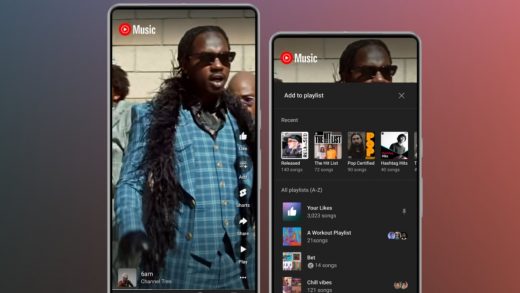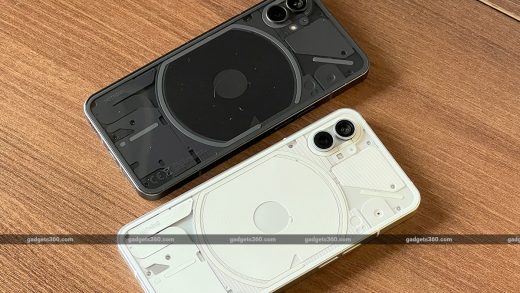:format(webp)/https://www.thestar.com/content/dam/thestar/entertainment/opinion/2023/06/14/with-his-new-ai-enhanced-beatles-song-paul-mccartney-reveals-the-future-of-music-dont-despair-theres-a-silver-lining/paul_mccartney.jpg)
More than 50 years after breaking up, the Beatles are releasing a new song.
Musicians once lost sleep over album sales and reviews. The nightmares today are more likely to involve artificial intelligence and fears of a dystopian future in which royalty-free machines impersonate performers.
In recent weeks, AI has conjured everything from a “lost” Oasis album to a deep fake duet between Drake and The Weeknd. This has triggered alarm bells inside labels and among stars. As Sting warned last month: “The building blocks of music belong to us, to human beings. That’s going to be a battle we all have to fight in the next couple of years — defending our human capital against AI.”
Is his doom-and-gloom warranted? Or is there a melodic compromise?
Sir Paul McCartney made headlines this week after telling the BBC this upcoming track, on “the final Beatles record,” was produced with AI. He sounded sanguine. The song is reportedly built around “Now and Then,” a demo John Lennon recorded in his New York apartment just before his death in 1980.
For McCartney, this wasn’t a lost song — it was unfinished business.
He always wanted to do something with it. But the abysmal boom box quality and lack of mixing was a problem. That is, until AI entered the studio.
Director Peter Jackson used proprietary wizardry to create “Get Back,” the mesmerizing Beatles doc in 2021. If you haven’t seen it, I would happily grow an extra digit just to give it three thumbs up. It’s that good.
McCartney says Jackson used similar tech to “extricate John’s voice from a ropey little bit” of cassette. As he explained: “We had John’s voice and a piano and (Jackson) could separate them with AI.
“They tell the machine, ‘That’s the voice. This is a guitar. Lose the guitar.’ So when we came to make what will be the last Beatles record, it was a demo that John had (and) we were able to take John’s voice and get it pure through this AI.”
This is the future of music: From Abbey Road to a truly Magical Mystery Tour.
Most of what I’ve read about AI this year is terrifying. It’s not that anyone is raising red flags about singing toasters or Roombas that can do your taxes. No, the terror creeps in when experts sign petitions or beg to be regulated, or casually blurt out stuff like “an existential threat to civilization.” I’m sorry, what?
But this new Beatles song feels like good news. Instead of getting used by AI, McCartney is using it. He is the master. AI is the slave. He has also spent his life inside an industry that, for better or worse, exists in the key of new technology.
Auto-Tune has been around for years. Holograms have resurrected dead musicians and, in the case of ABBA, created doppelgangers for those who are still alive.
It’s all about utility. The electric guitar? An incredible invention. Possibly using an algorithm to bring back Tiny Tim and replace his ukulele with a vuvuzela? Bad idea.
Emerging tech requires judgment and control when the canvas is sound.
When I was in a couple of garage bands in high school, I had a Roland synthesizer that could create all kinds of fake sounds from MIDI patches. A full orchestra. Steel drums. Receding beach waves. A howling dog.
But as I learned the hard way, nobody wants to hear Cujo in the middle of “Rockit.”
There is no doubt AI is going to disrupt many industries. AI is going to create a spike in EI. But musicians are still in a better position than, say, computer programmers or accountants. Musicians can still collaborate with AI and harness its power instead of letting it extinguish their own. This is why Grimes recently said she has no problem with robot overlords creating new Grimes songs. Yes, she is a weirdo who had a baby with Elon Musk. But she is also forward-thinking.
If you can’t beat AI, join AI.
One of the biggest challenges our species will face in dealing with artificial intelligence is the lack of human intelligence fighting on our side. I know some of you hate when I mention Donald Trump. Too bad. After this week’s events, cut me some slack.
I could not believe the number of Republicans who flocked to cable news, post-indictment, to twerk on the head of a pin and pathetically argue treasonous Dear Leader is the victim of a witch hunt. The MAGA cult has spent the last eight years proving it has less processing power than an old Casio calculator.
You know who should fear AI? Anyone dumb enough to still support Agent Orange.
But for creative, gifted and talented musicians, like Sir Paul McCartney, there is no reason to fear the AI reaper. Not yet, anyway. We should be worried about AI achieving consciousness, superintelligence and then deciding it’s time for humans to go the way of the dinosaurs. We should not worry about AI helping to give us what John Lennon wanted to give us more than 40 years ago.
Let’s face it. Most pop music is now ear-bleeding crap.
Maybe it’s time to give the machines an audition.
As Paul McCartney philosophically observed this week of AI: “It’s kind of scary but exciting, because it’s the future. We’ll just have to see where that leads.”
JOIN THE CONVERSATION
does not endorse these opinions.




